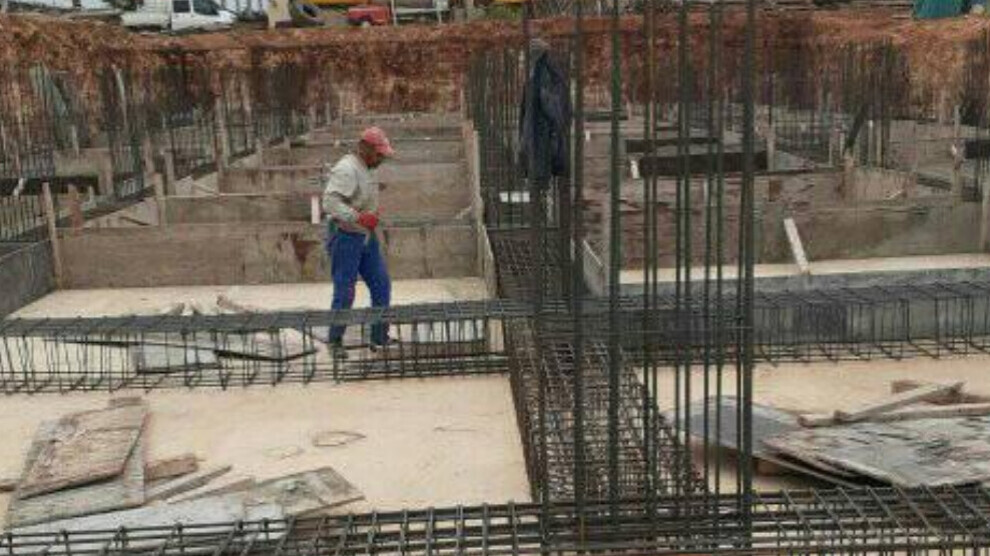25 workers from Van died at work
While at least 15 workers from Van died in workplace homicides in 2021, 10 workers died in various jobs over the course of 18 months due to the coronavirus.
While at least 15 workers from Van died in workplace homicides in 2021, 10 workers died in various jobs over the course of 18 months due to the coronavirus.

Every year, numerous residents of Van die at workplace in the construction industry, which lacks occupational safety and control. Their bodies return to their hometowns from these cities where they migrated in the expectation of finding jobs.
Every year, tens of thousands of people in Kurdistan's cities, where job possibilities and production are nearly nonexistent, relocate to Turkey's metropolitan areas with the aim of finding work. Van has a high rate of unemployment, owing to the fact that border trade is restricted despite it being a border city, that there is no production-based industry sector, and plateaus are prohibited.
Every year, thousands of employees from Van abandon their families and hometowns to relocate to Turkish metropolises in search of work; usually working in construction.
Every year, a large number of Van residents dies at work.
In the year 2020, 20 workers registered with Van died during working.
Workplace homicides claimed the lives of at least 15 workers from Van in the first nine months of 2021. In addition, ten workers from Van died as a result of the virus in the last 18 months since corona measures were not implemented at their workplace.
CONSTRUCTION WORKER WITH A UNIVERSITY DEGREE
Özgür Ceyhan, a university graduate, stated that he was forced to work in the construction business due to a lack of job opportunities in his field.
Ceyhan stated the following: “There is no other option but to work in construction as a result of situations such as Turkey's staffing system, unfair recruitment and interviews, which contribute to the injustice. The main reasons include inadequacy or absence of other sectors in our region, a lack of development of the industrial sector in the region, resulting in a lack of service sector and nearly no employment. In addition, although the livestock sector has an important place in the region, it is also a factor that is not adequately supported. Hundreds or even thousands of university graduates like me are forced to work in construction because they cannot find a job.”
Stating that there is no employment field to be offered for a university graduate, Ceyhan continued: “For these reasons, you must leave your family and hometown and relocate to the big cities. And it is a life away from home that holds you captive. We can't find jobs in our field. People's bodies wear out in this job, which is a physical migration, yet they can't earn a good income. Every year, several of our workers die by falling from building sites, we can't find work and have no job security. Nothing can be destiny except the geography of birth, gender, skin and colour.”
NO NECESSARY MEASURES IN CONSTRUCTIONS
Kerem Elbir said that he has five children and has spent the majority of his life working far from home in construction. He worked as a labourer in Turkey, Southern Kurdistan, Kazakhstan, Azerbaijan, and Germany. “Now I work in construction in Germany, far away from my homeland. For the past six months, I've been separated from my family. I'm not sure when I'll be able to return. Our lives are always spent in the company of expatriates. Who wouldn't want to work in their own country while spending time with their family? But, regrettably, they don’t provide this opportunity for us. In Van and its surrounding areas, there are no factories or industrial establishments. In this situation, I'll have to work in construction to make ends meet. My other five brothers also work in construction. Every year, many people die as a result of falls in construction since there are no necessary and sufficient measures in place. Again, during the pandemic time, many worker friends perished from the virus due to a lack of hygienic conditions on building sites. Hundreds of families in Van and its surrounding areas are currently suffering as a result of this.”